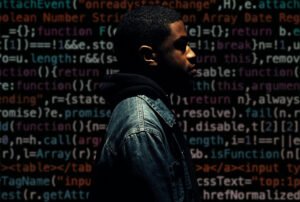
One week after Providence city councilor Miguel Sanchez was fired from his job as a constituent services staffer for posting that the United States was “actively aiding in genocide” in Gaza, he decided to make it count. On November 2, Sanchez helped organize a ceasefire resolution to stop the Israeli military’s ongoing bombing of Palestinians on the council floor: “This resolution urge[s] our federal delegation and the president to support something that most Americans are supporting now, and that’s a ceasefire.” It passed 11-1.
Now, progressive elected officials and allied movements are finding new ways to use local power to urge Democrats in Washington to stop the assault on Gaza.
The resolution makes Providence one of the first city governments in the country to pass legislation explicitly calling for a ceasefire—and more cities are following suit. But as the Palestinian death toll climbs to over 10,000 people, this legislative action is not happening at a federal level. Democrats are divided on the issue: close to 20 Democratic members of Congress led by Rep. Cori Bush (D-MO) have signed on to a resolution calling for a ceasefire, while others, including the president himself, have suggested a “pause” to the bombing, either to deliver food, water, and medical supplies or to remove hostages.
In the face of this federal standstill, local bodies like the Providence City Council refuse to sit idly by as the situation worsens. Now, progressive elected officials and allied movements are finding new ways to use local power to urge Democrats in Washington to stop the assault on Gaza.
Ceasefire, Now!
Over the last month, the world has watched bakeries, universities, United Nations-run schools, and refugee camps in Gaza relentlessly bombed by the Israeli Defense Forces on social media and international news. The ongoing air assault and cutoff of food, fuel, and water to the Palestinian people has been internationally identified as collective punishment after Hamas’ attack on Israel on October 7. International organizations, including the United Nations, have appealed for a ceasefire, calling Gaza a “graveyard for children.” The Israeli military reports that “dozens” of Hamas commanders have been killed, a small fraction of the tens of thousands of people killed.
Israel has amassed one of the most powerful militaries in the world to maintain control in Gaza due to US support. The entire Israeli military apparatus, including its mobile air defense system, the Iron Dome, has long depended on funding from the United States—around $124 billion since 1946, with $3.8 billion in 2023 alone.
The United States has also directly supplied munitions and military supplies to Israel. According to an update by Al Jazeera, Palestinian officials reported that 18,000 tons of bombs had been dropped on Gaza as of November 3. Most of these bombs are of the US-designed MK80 series, and most of the Israeli Air Force’s planes are US-made F-15, F-16, and F-36 fighter jets.
Congressional action around ending Israel’s siege on the Gaza Strip has mostly been in support of increasing support for the Israeli military. The Republican-led US House of Representatives passed a bill providing a $14.3 billion military aid package for Israel. “Israel doesn’t need a ceasefire,” said newly appointed Speaker Mike Johnson, who put forward the resolution as his first order of business. “It needs its allies to cease with the politics and deliver support now.” This resolution made no mention of Palestinian lives lost, it tied Israeli military aid to spending cuts to the IRS, and it included a provision to waive congressional notification of all future sales of military equipment and weapons to Israel.
Progressive members of Congress—including Alexandria Ocasio-Cortez, Cori Bush, and Rashida Tlaib—signed the Ceasefire Now Resolution, urging “the Biden administration to immediately call for and facilitate de-escalation and a cease-fire to urgently end the current violence” in Gaza. As of November 7, just 18 members of Congress had signed in total. Progressive leader Senator Bernie Sanders has neither signed the resolution nor spoken out in support of it, outflanked by Illinois Senator Dick Durbin.
Over a month into the attacks on Gaza, the Biden administration has continued to ineffectively exert US political influence to curtail Israel’s military operations, privately warning the Israeli government about civilian casualties but publicly dispensing military aid and proclaiming support. State Department officials have resigned, citing policy disagreements around the Biden administration’s “continued lethal assistance to Israel” and calling the President “complicit in genocide” on social media. Meanwhile, officials have been unable to officially effect a “pause,” despite Secretary of State Antony Blinken’s trip to negotiate strategy and Biden’s conversations with Israeli Prime Minister Benjamin Netanyahu.
Although federal officials in Washington, DC, may be divided on the issue, millions of people in the United States have called for a ceasefire. On Saturday, November 4, over 300,000 people gathered at Freedom Plaza in Washington, DC, for the National March on Washington for Palestine—the largest pro-Palestinian demonstration in US history. Around 500 protestors with anti-Zionist organizations Jewish Voice for Peace and IfNotNow staged a sit-in at the Capitol just two weeks earlier.
But as the federal government delays action, local governments refuse to remain silent.
Act Local, Think Global
Speaking out about Palestine has long put people at risk for censure, but people have recently lost jobs for expressing support for civilians in Gaza during what experts are identifying as mass ethnic cleansing and genocide. In social media posts following his dismissal, Sanchez stood by the remarks online that got him terminated by Rhode Island Governor Dan McKee: “As Israel continues to escalate its massacre in Gaza, the need to speak out for innocent Palestinian civilians has never been more urgent—regardless of personal consequences.”
Sanchez and fellow councilor Justin Roias, who also put forward the resolution, were able to bring it to a vote with the support of City Council President Rachel Miller, who voiced her support in advance of the vote by saying that Israel’s cutoff of food and water was “perilously close to ethnic cleansing.”
Sign up for our free newsletters
Subscribe to NPQ's newsletters to have our top stories delivered directly to your inbox.
By signing up, you agree to our privacy policy and terms of use, and to receive messages from NPQ and our partners.
Like the resolution sponsored by progressives in Congress, the one out of Providence City Council declares that “the Federal Government holds immense diplomatic power to save Israeli and Palestinian lives” but specifically argues that Rhode Island federal officials “must use the platform provided by their office to advocate for measures that will result in the least amount of death and violence.” The statement names Rhode Island’s national elected officials: House Representative Seth Magaziner, as well as US Senators Jack Reed and Sheldon Whitehouse.
The main goal of the city council resolution is to get Rhode Island’s members of Congress to pay attention to what the city of Providence wants. “They haven’t been pressured,” Sanchez expressed, and “the further they get away from local government, the more out of touch politicians can become.” As of late last week, Reed and Whitehouse had not responded to the city council’s directive.
Organizing a ceasefire resolution at the city council level was also a way to represent the 80 percent of polled Democrats who agree that the United States should call for a ceasefire and de-escalation and leverage its diplomatic relationship with Israel to stop the violence. Sanchez said that elected representatives have a responsibility to lift up these popular positions during a crisis and shared that almost a hundred of his constituents have reached out to support him for speaking out on the issue.
Sanchez’s actions present a proof of concept that progressive movements have been testing out in recent years to make political change happen by securing seats in local and state government. “It’s important to get like-minded people in these positions that have principles, morals, and political courage,” Sanchez said. He also explained that he is confident that the community he represents and is rooted in, the majority Latinx and Black neighborhood of Ward 6, is behind him: “As long as I’m in tune with them, I’ll keep voicing what’s right.”
In January of this year, Providence swore in its most diverse city council, with a majority of people of color and a majority of women. Both councilors, Sanchez and Roias, who spoke up for the resolution, are in their first year of service. According to a source inside the city council, it’s this “new blood” that makes it so changes in political power building can happen. Even though a ceasefire resolution might seem symbolic, local elected officials know that having a space for these issues allows constituents to understand that their political agency matters.
Strong Movements Mean Strong Strategy
What is happening in Providence and Richmond is spreading. Other major cities, such as Detroit and Seattle, are taking up the task of passing similar resolutions. Movement groups across the nation, including in Providence, have played an enormous role in not only building mass mobilization but also shaping these new legislative strategies.
People taking action together creates [political] space for new possibilities.
As mass movements in cities across the country become impossible to ignore, public opinion is quickly shifting—and strategy must keep up. Organizers with Jewish Voice for Peace in Rhode Island (JVP-RI) told NPQ that “this growing gap between movements on the ground and federal elected officials is spurring creative thinking about the role that local governments can play in building public support for a ceasefire and intensifying the pressure on Biden and Congress.”
Alongside Providence’s progressive city council, JVP-RI organizers said that their group “sprung back into action soon after October 7,” knowing that Israel’s retaliation on Gaza would aggressively escalate violence in the West Bank. They took steps to plan actions and respond to constantly developing events, convening meetings, organizing a banner drop, demanding a ceasefire, and planning and participating in a Palestine solidarity rally on October 21.
JVP-RI also worked closely to influence the city council’s internal debate around a ceasefire resolution, as separate statements emerged from separate councilors. One of these statements put forward by Councilman John Goncalves that condemned Hamas but failed to mourn the lives of Palestinians killed in the ongoing siege of Gaza did not pass. The chapter also spoke out in support of Councilman Sanchez after his firing. On the evening of the city council vote, 30 JVP-RI members showed up to signal support for the resolution.
Local ceasefire resolutions show us that we must use every tool in the box to mobilize in the face of crisis—especially when millions of lives hang in the balance.
One way to understand what the Rhode Island chapter of Jewish Voice for Peace is doing is the inside/outside strategy, where resistance movements create mass mobilizations outside traditional power structures to work alongside progressive legislators inside them. To do this on such a historical and horrifying issue, JVP-RI has not only engaged in city council politics but also worked hard to move the Providence community “through leafleting and canvassing to educate folks about the genocide and urge them to call their congressional members to demand a ceasefire.”
People taking action together creates space for new possibilities. JVP says that these actions around the ceasefire “have helped open up political space for progressive Jews in Providence.” Like chapters in New York and elsewhere making bold demands through direct action and organizing, JVP-RI organizers say that working with their local progressive government was one step in a longer strategy to “escalate the pressure on the federal lawmakers who are complicit in genocide.”
Progressive organizations around the country have known for a long time that working with local government is a necessary part of a larger strategy to make political change happen at the municipal or state level. Local ceasefire resolutions show us that we must use every tool in the box to mobilize in the face of crisis—especially when millions of lives hang in the balance.













